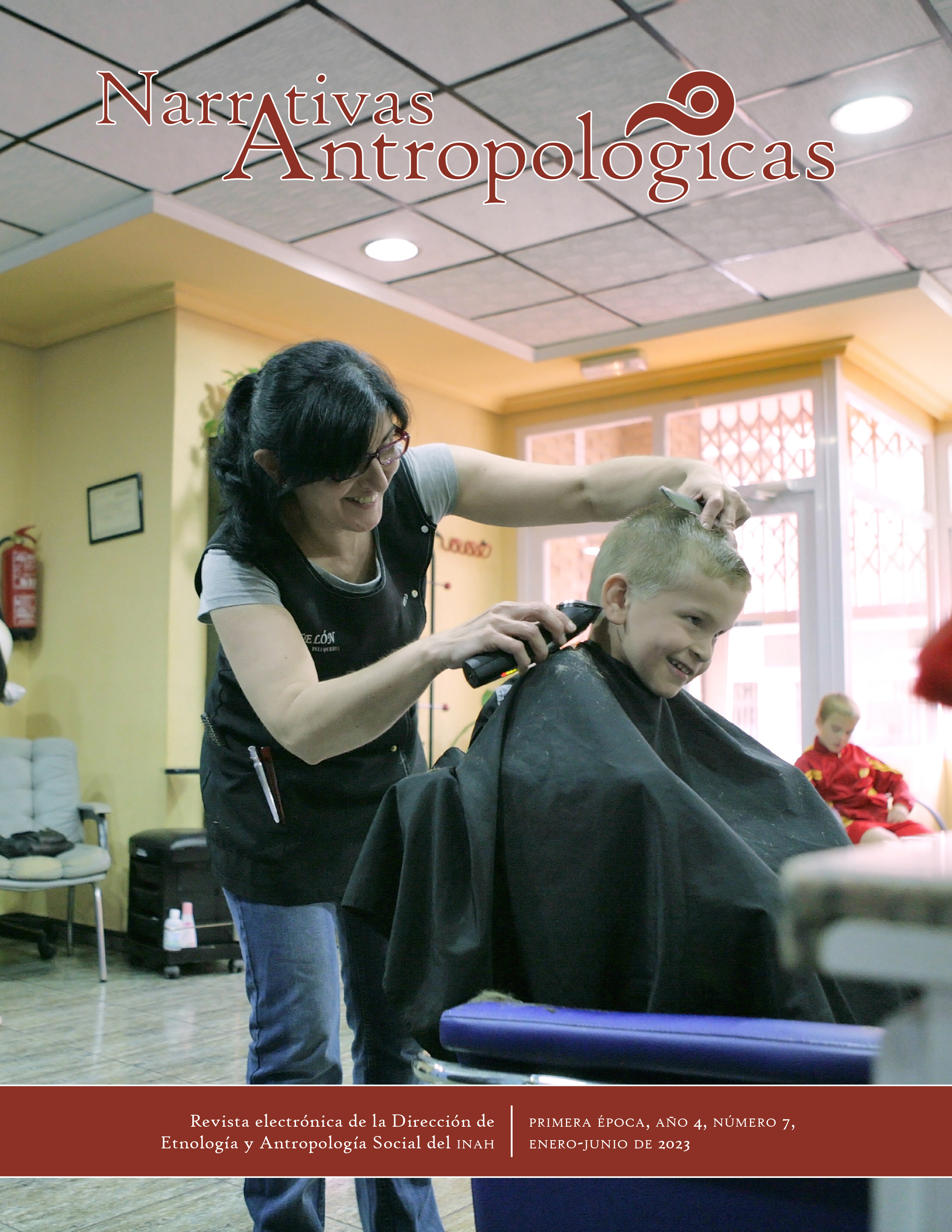Voz de roca. La importancia del testimonio como género discursivo en el reconocimiento de la violencia obstétrica
Publicado 2022-12-09
Palabras clave
- violencia obstétrica, testimonio, géneros discursivos, discurso, vulnerabilidad.
Cómo citar
Resumen
El artículo estudia una experiencia de violencia obstétrica. Analizo la construcción discursiva desde la propuesta heurística de Das (2008) sobre testimonio, en diálogo con el trabajo de Bajtín (2012) sobre géneros discursivos. Propongo que el testimonio es un género discursivo íntimo que tiene un potencial político, pues la persona que lo enuncia expone públicamente su vulnerabilidad; en ese acto la subjetividad, anclada en preceptos morales, tiene un papel importante para desarticular del modelo oficial del mundo (Bajtín, 2012). En el testimonio se expone una visión del mundo que confronta las normas dominantes. Inés, mi interlocutora, muestra en su narrativa una disputa entre la pertinencia de la “acción médica” frente a la “experiencia encarnada del parto”. El mensaje cobra potencia discursiva a través de relaciones dialógicas (cambio de sujetos discursivos) junto con una tendencia a la “fusión entre el hablante y el destinatario”, característica de los estilos íntimos bajtinianos. A partir de este análisis propongo que para comprender la violencia obstétrica y su proceso de significación es necesario: situar la experiencia en la trayectoria vital de quien ha encarnado el ejercicio de poder obstétrico en el marco de un Estado nacional mexicano en el que la violencia contra las mujeres es un fenómeno extendido.
Descargas
Referencias
- Bajtin, M., T. Bubnova y G.?S. Bemshtein, Estética de la creación verbal, 2a. ed., rev. (México: Siglo XXI Editores [Lingüística y Teoría Literaria], 2012 [1952-1953]), 284.
- Bernstein, R. J., Violencia: pensar sin barandillas. Serie Cla-de-ma. Filosofía (Barcelona: Gedisa, 2015).
- Butler, Judith, y Horacio Pons, Dar cuenta de sí mismo. Violencia ética y responsabilidad (Buenos Aires / Madrid: Amorrortu [Mutaciones], 2012), 24.
- Das, V., Sujetos del dolor, agentes de dignidad, Bogotá / Medellín: Pontificia Universidad Javeriana Instituto Pensar / Universidad Nacional de Colombia-Facultad de Ciencias Humanas y Económicas / Universidad Nacional de Colombia-Facultad de Ciencias Humanas, Centro de Estudios Sociales [Lecturas, CES], 2008);
- Felman, Shoshana, y Dori Laub: Testimony. Crises of witnessing in literature, psychoanalysis, and history (Nueva York: Routledge, 1991).
- Gilson, E., “Vulnerability, ignorance, and oppression”, Hypatia, vol. 26, núm. 2 (2011), 308-332, 310, acceso el 5 de octubre de 2022, http://www.jstor.org/stable/23016548.
- Jakobson, R., J. M. Pujol y J. Cabanes, Ensayos de lingüística general: XV Lingüística y poética, 2a. ed. (Barcelona: Seix Barral [Biblioteca Breve, 381, Ciencias Humanas] 1981), 383.
- Sexagésima Primera Legislatura Constitucional del Estado Libre y Soberano de Guanajuato, “Ley de Acceso de las Mujeres a una Vida Libre de Violencia para el Estado de Guanajuato”, Periódico Oficial del Gobierno del Estado de Guanajuato, 21 de octubre de 2020, artículo 5.viii (reformado, 13 de julio de 2020), acceso el 5 de octubre de 2022, https://legislacion.scjn.gob.mx/buscador/paginas/wfArticuladoFast.aspx?q=53E5PvVpljaUSQiybXXEcOQ6A6KTzJx79wzyJcwK2fCfEVgH+40VB4DfQQXInVDmKvmip6lrFCqdPURkWW1z5w==.

